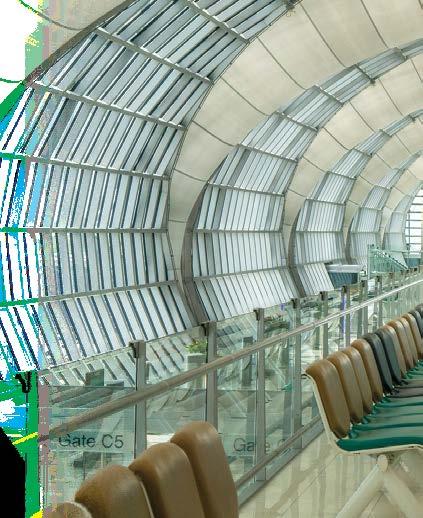laundry review are not available or they are unclear, we recommend that countries follow World Health Organization (WHO) guidelines. Thermal disinfection is a commonly applied and easy-to-implement laundry disinfection process, included in almost all local guidelines. It relies on a specific temperature and contact time and is not dependent on a specific product. Most countries follow WHO guidelines for thermal disinfection, which specifies a temperature of 70 °C for 25 minutes. More stringent European guidelines from Germany are also allowed, i.e. 85 °C for 15 minutes or 90 °C for 10 minutes. The chemo-thermal process is also acceptable and makes use of a combination of chemicals, temperature and contact time. This process is less flexible and more complex than thermal disinfection, because it depends on specific products with antimicrobial claims. Furthermore, it is extremely important that all the wash process steps are followed exactly as described.
Chemo-thermal disinfection is normally recommended for items that cannot withstand high temperatures.
Once your hotel is open, follow Enhanced Cleaning and Disinfection Guidelines From the first happy day of reopening your hotel onwards, it is important that you follow the Enhanced Cleaning and Disinfection Guidelines. As part of these guidelines, we recommend that after every guest check-out, all linen, including all unused linen, is washed. Should you still be using pillows and duvets without a protector, then we recommend enhancing the wash frequency of these items after every guest as well. For fabrics such as curtains, we recommend (at minimum) doubling the frequency of washing vs current hotel practices. As mentioned before, for linen handling, it is important to scale up to Infection Prevention procedures and therefore we have issued Enhanced
Skills e-programme to ensure effective cleaning and sanitising
K
ukhula Global Projects, a nationwide training provider, found the need for a COVID-19 cleaning and sanitisation programme for both domestic and commercial cleaners in every industry. When employees started returning to the workplace and domestic cleaners started entering the homes of their employers, the importance of cleaning and sanitising to ensure the health and safety of staff, visitors, and suppliers was paramount and the same applied for the home, with their families. Kukhula designed a programme that would cover all of the standard operating procedures and policies following the guidelines of WHO, the NICD, CDC and an Occupational Health, Safety & Environmental Advisor to clean and sanitise the workplace or home
effectively. To further expand on the cleaner’s knowledge, basic hygiene and cleaning skills were incorporated into the course such as cleaning bathrooms, surfaces, windows, and floors to name but a few, which is aligned and accredited with the Services SETA. Ensuring the daily cleaning and sanitisation of the office and home is imperative and must be conducted correctly to prevent the spread of COVID-19 as well as other illnesses and diseases. These practices should become the new normal for all cleaners. The course is available Online with Virtual Classroom sessions. The duration is approximately 1-2 months (COVID-19 section is approx. 1-2 weeks), dependent on the learner’s pace. “We develop learners through our dynamic facilitation and practical
Laundry Best Practices for hotels. A critical requirement of these guidelines is that agitation of linen should be limited as much as possible to prevent spreading of the virus. To this end, you should consider using different carts for collecting soiled bed vs bath linen, so that sorting in the laundry can be avoided. In the event of a suspected case, we recommend that you bag all linen. And, in case your hotel uses linen chutes, it is important to ensure safe procedures are in place for the use of these chutes. Finally – to prevent contact of staff with potentially infected linen – it is important that you temporarily switch from pre-spotting to post-spotting. Of course, we are happy to assist with any further question you may have in these challenging times. Contact Diversey’s Hospitality Sector lead South Africa, Mariette van Vuuren at: Mariette.vanvuuren@diversey.com
e-training
application to give learners practical competencies and skills that will enable them to fulfil and exceed in their roles within the organisation and optimise future growth,” says Kukhula Director Robert Ramagoma. Learners will gain 58 credits towards the GETC: Hygiene and Cleaning NQF1 qualification. There is no minimum or maximum number of learners that need to be enrolled and they can start at any time. The course fee is R2 500.00 excl. VAT per delegate. For additional information, e-mail Kukhula Global Projects: sales@kukhula.co.za
African Cleaning Review September/October 2020
27











